Occipital on Tuesday launched a $500 VR development kit that uses the company's proprietary Structure Core 3D Sensor to turn smartphones — including iPhone — into VR headsets with true room-scale position tracking technology.
Though virtual and augmented reality technologies have long been available to phones running Android, as popularized by Samsung's Gear VR product line, iPhone users looking to experience AR/VR are, somewhat ironically, relegated to Google Cardboard. That might soon change thanks to Occipital's dev kit.
Demonstrated to Upload, the head-mounted system integrates specialized software called Bridge Engine with data input from an attached Structure Sensor to grant users six degrees of freedom positional tracking. In the case of iPhone, Occipital also incorporates support for Unity for iOS.
Small enough to fit on the back of an iPhone 6 series-sized device, the Structure Sensor works with Occipital's SDK to create accurate color depth maps of a given environment. The technology allows for advanced applications like 3D scanning, large-scale SLAM (simultaneous localization and mapping) with and AR solutions. Apply the sensor to a smartphone headset cradle, add on a wide-angle lens adapter, and you have a viable VR rig with active object avoidance.
Powered by the host smartphone, Occipital's VR kit is relatively power efficient, using only a single mobile chip core. Despite low energy overhead, the company touts a stable image platform with low jitter and latency less than 10 milliseconds. In its testing, however, Upload said the kit seemed less responsive than the advertised 10ms performance threshold. Part of the problem might be blamed on hardware constraints, as iPhone lacks low-latency screens.
The dev kit is just the first step on a path toward a full-fledged headset. Modern VR products rely on rotational tracking or fixed location light emitters to track user position, and are usually tethered to a host computer with a bulky cable. Object avoidance, when available, is accomplished through a built-in camera, as seen in HTC's Vive headset.
Occipital's Structure Sensor promises the same VR experience with enhanced positional tracking and object avoidance in a truly mobile self-contained system free of wires.
Developers interested in putting the kit through its paces can apply to buy a copy through Occipital's website. The system comes with one Structure Sensor, wide-angle adapter lens for iPhone, a Homido 1 VR viewer and custom 3D-printed faceplate and phone case.
Apple has also shown interest in AR/VR tech. CEO Tim Cook in July revealed Apple is investing in such solutions, and more recently said AR could be a "core technology" of future iPhones. Despite numerous patent filings relating to computer vision and intense spending, including acquisitions of sector specialists PrimeSense> and Flyby Media, the company has yet to produce a shipping product.
 Mikey Campbell
Mikey Campbell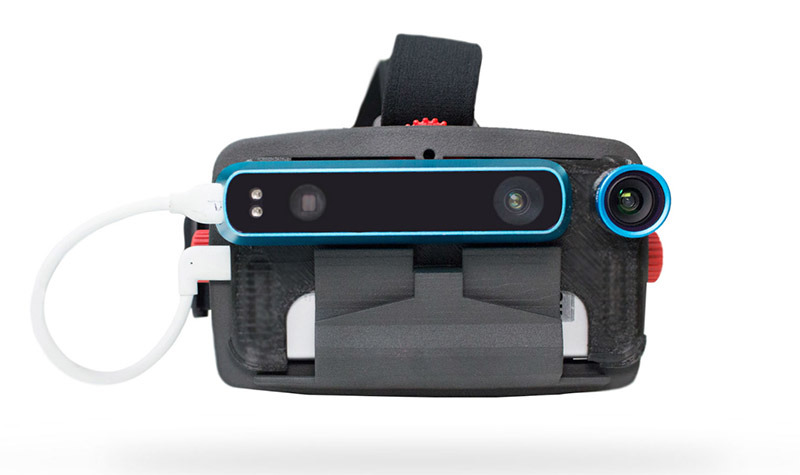



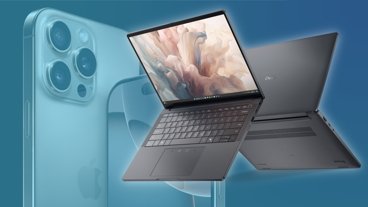
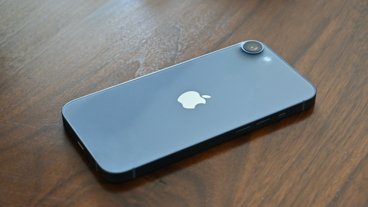
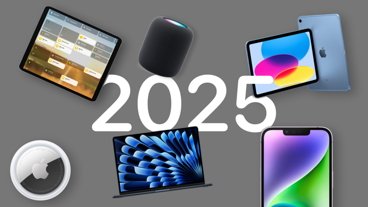

-m.jpg)






 Wesley Hilliard
Wesley Hilliard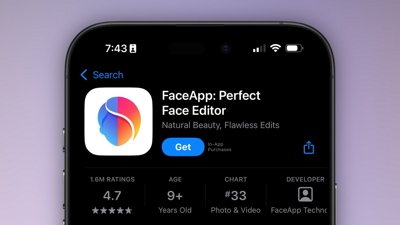

 Marko Zivkovic
Marko Zivkovic
 Christine McKee
Christine McKee
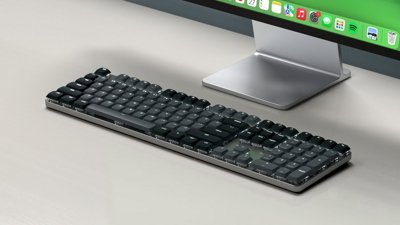
 Malcolm Owen
Malcolm Owen
 Amber Neely
Amber Neely
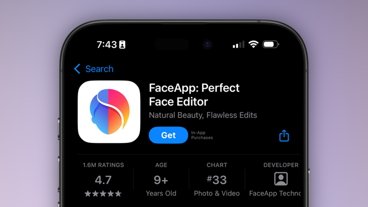








6 Comments
See "Apple patents laser mapping system, etc.", AI's first post on Tuesday, September 27, 2016. Clearly it is intended to be part of a positional tracking system for mobile VR.
Companies that honor Apple, like this one, should be high on the acquisition list.
I'm pretty sure it's going to be totally amazing where technology like this leads in the next few years. My one hesitation is the need for a clunky head sets to see VR. The acquisition end is truly becoming almost science fiction level, but IMHO there needs to be a paradigm shift in the viewer's end of this technology before it really takes off. I have no clue what that may be although at one point holography seemed to offer a promise that died. Star Trek's holoDeck seems the ideal but beyond our reach unless it is achieved through some Matrix like immersion. In the end that actually might be the ultimate answer, a direct brain interface and simply bypass the whole retina thing!.
I maintain my position that "real VR" (not simply 360 degree video, which is now being marketed as "VR" by utter and complete idiots) will remain a tiny niche market, whereas coming versions of AR have much more room for development and adoption.